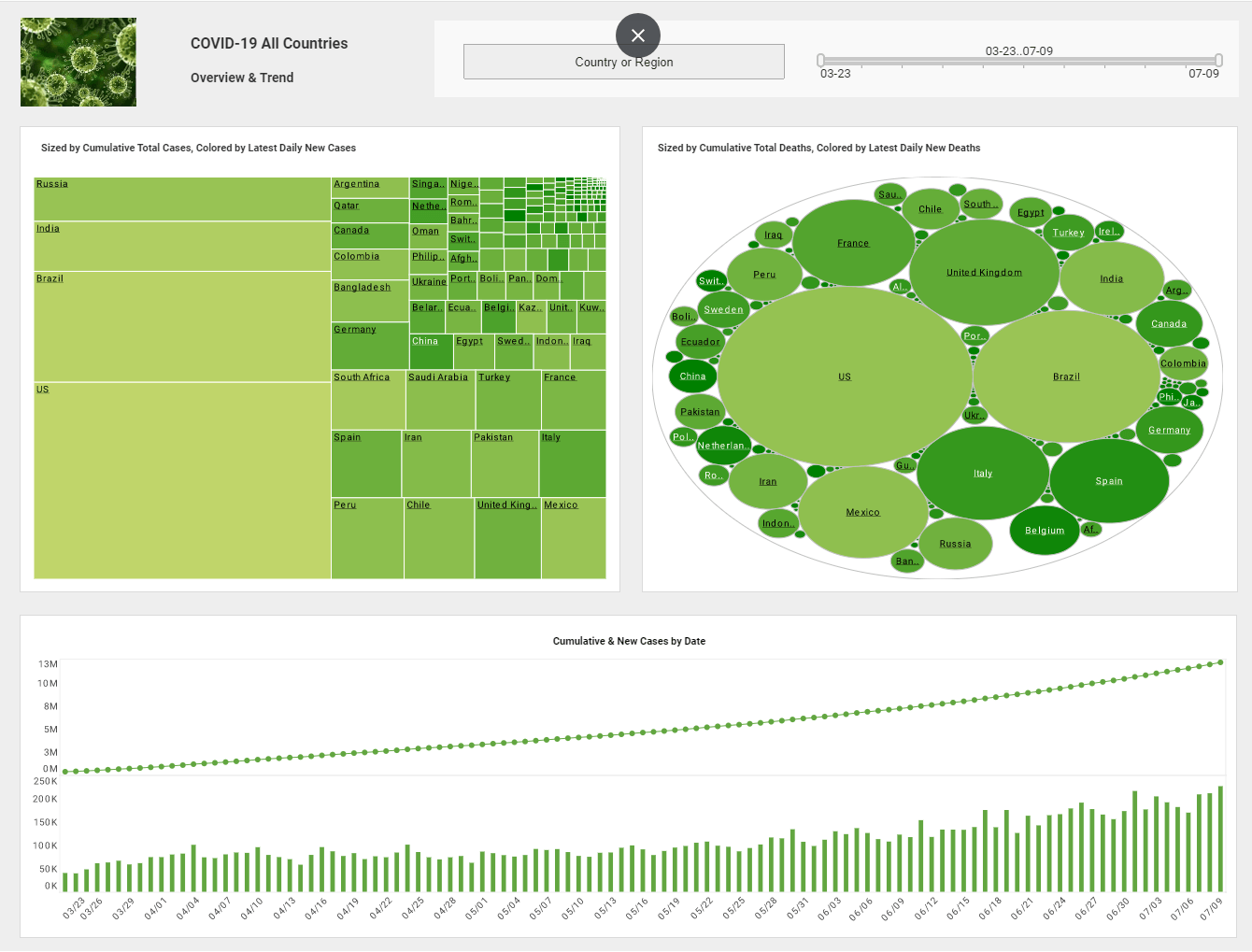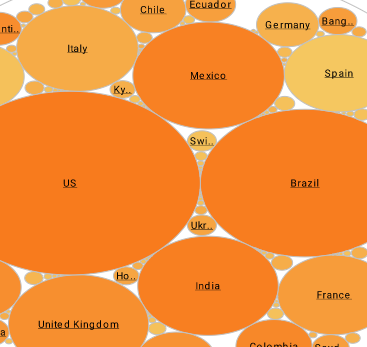Big Data Has Been Around
This is the continuation of the transcript of a Webinar hosted by InetSoft on the topic of "Buzz Around Big Data." The speaker is Abhishek Gupta, product manager at InetSoft.
If Big Data in a way has been around for a long time, why is it such a hot topic now? Well, it’s part of the emerging technology research that we are doing now, and it's really showing a cycle. The cycle is the business demands to do something more quickly and cheaply. They want to deal with all of this information and get some value out of it.
And there will be technologies that allow you to do that, but probably they aren’t as affordable as they could be, and that will go on for a long time. So predictive analytics has been doing it for a long time. Massively parallel processing has been around for long time. All of these things have been around. But something will come along that makes it cheaper, and all of a sudden somebody will take advantage of that being cheaper and do something really cool.
It began with Google doing their implementation and big table and all those things. Then Yahoo and Facebook and those other organizations came together and used Apache in doing the Hadoop implementation. These things slowly built on one another. Eventually, this will catch on and lot of vendors will get involved.
| #1 Ranking: Read how InetSoft was rated #1 for user adoption in G2's user survey-based index | Read More |
Emerging Use Cases for Big Data
A lot of emerging use cases for Big Data develop. The hype builds up, and then these new BI vendors it will satisfy the needs, and then new use cases will pop out. People will discover new ways to use the technology. Those new ways to use a technology will then cause more excitement. And eventually, the stuff that doesn’t work will go away, and the stuff that does will establish new business norms.
Those new business norms mean we will stop talking about it. It is the way to do business, and then the cycle repeats. And that’s what’s going to happen with Big Data. We are all talking about it now. Five, 10 years from now will this be the way the business gets done, and we won’t be talking about it.
Another hot topic I think in Big Data is the unstructured nature of it too, the availability now of unstructured data analytics that we didn’t really have before. I guess you could argue that, and a lot of that’s coming from the Web. I saw an article I think it was yesterday in the Wall Street Journal.
A company mines about six million user created content pieces, comments about products. The company analyzes this data to analyze the suggestions for the products. And a lot of it was about new products, or colors, or they wanted an old model of the product. So I think companies are trying to use a lot of this unstructured data that they couldn’t use before as well, and I think that’s been driving it as well.
Measuring Client Behavior
Another goal in mind is measuring client behavior through the mobile channel. There is an awful lot of data coming in to us now through client interaction through apps, client interaction through the mobile web, and client geolocation data. Data mining things out of social media such as Twitter streams or mining things out of blogs, that’s okay but what people do is way more valuable than what they think or what they say.
And I noticed, I was at the Google I/O conference about a month ago, and they released their new Android operating system code name Jelly Bean. And they are talking about a new system where you can opt in on your location and it will detect your commuting pattern. Interviewer: After a while it's like gee this guy seems to go to Cambridge quite a few times a week, in the morning.
There is another really interesting small startup in the valley, what they are doing, if I understand it correctly, is they are creating a middleware that deploys partly on your servers and partly on the app and allows users to assert much more control over the information that’s released when you opt in for location services.
We need things like that to give people more assurance that their data is not being used for purposes that they don’t agree to. But then once you have those in place, then people will be able to share a lot more of their information. Companies will be able to give back coupons or services do their location, and that’s just going to unlock an explosion. But things like Big Data we are going to be really need to take advantage of it.
| Previous: Data Warehouses as Refrigerator-sized Appliances |



